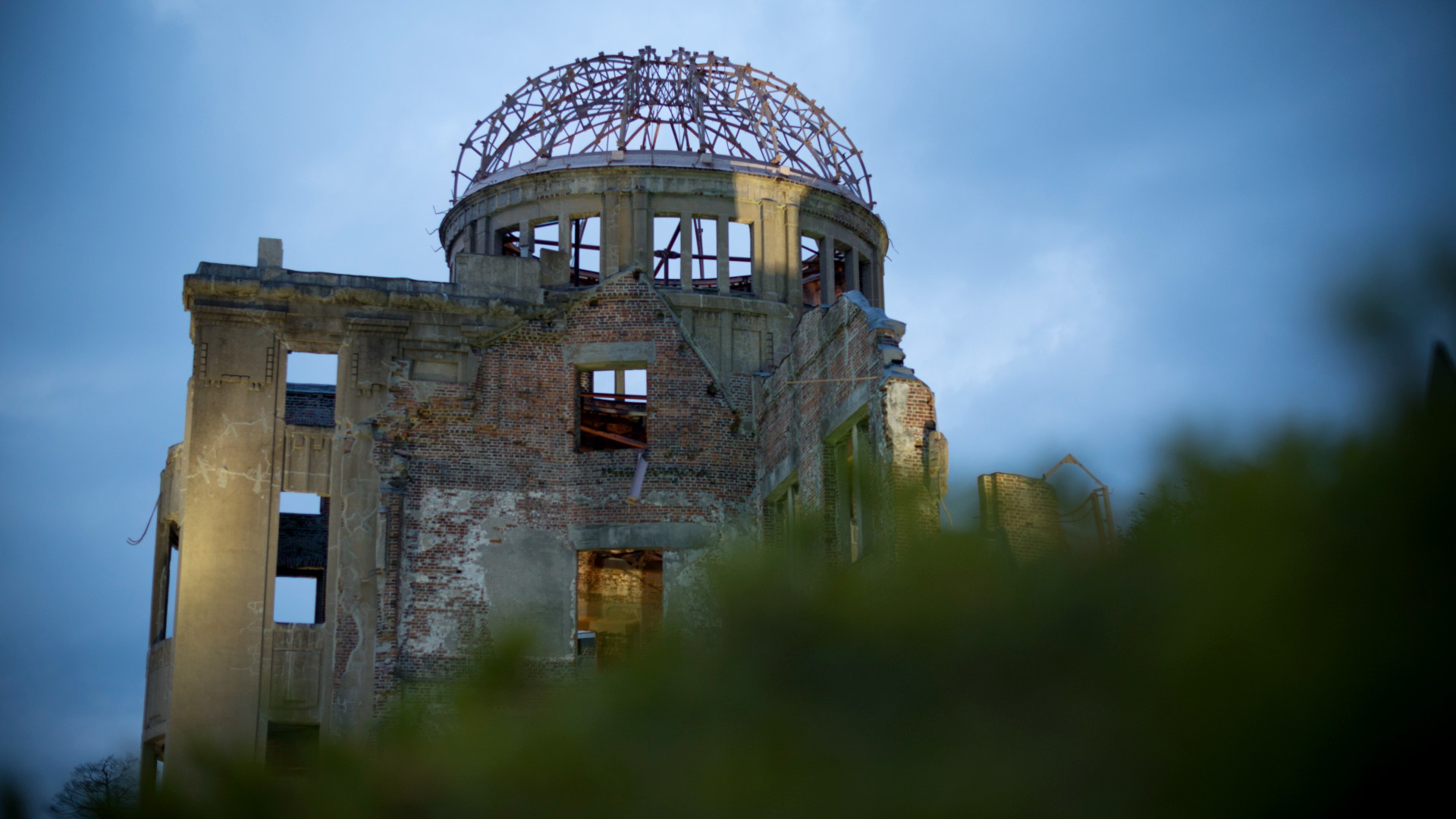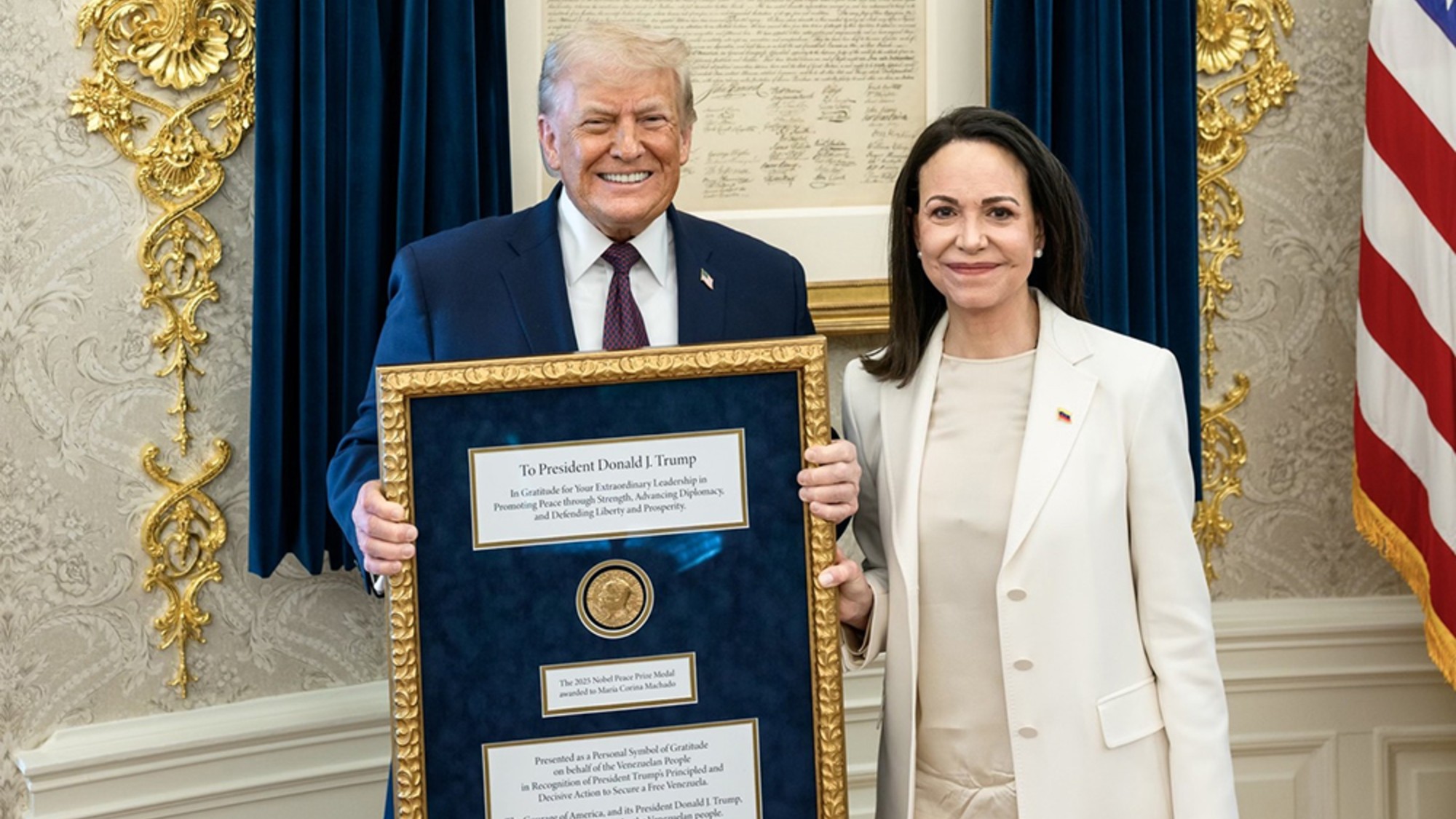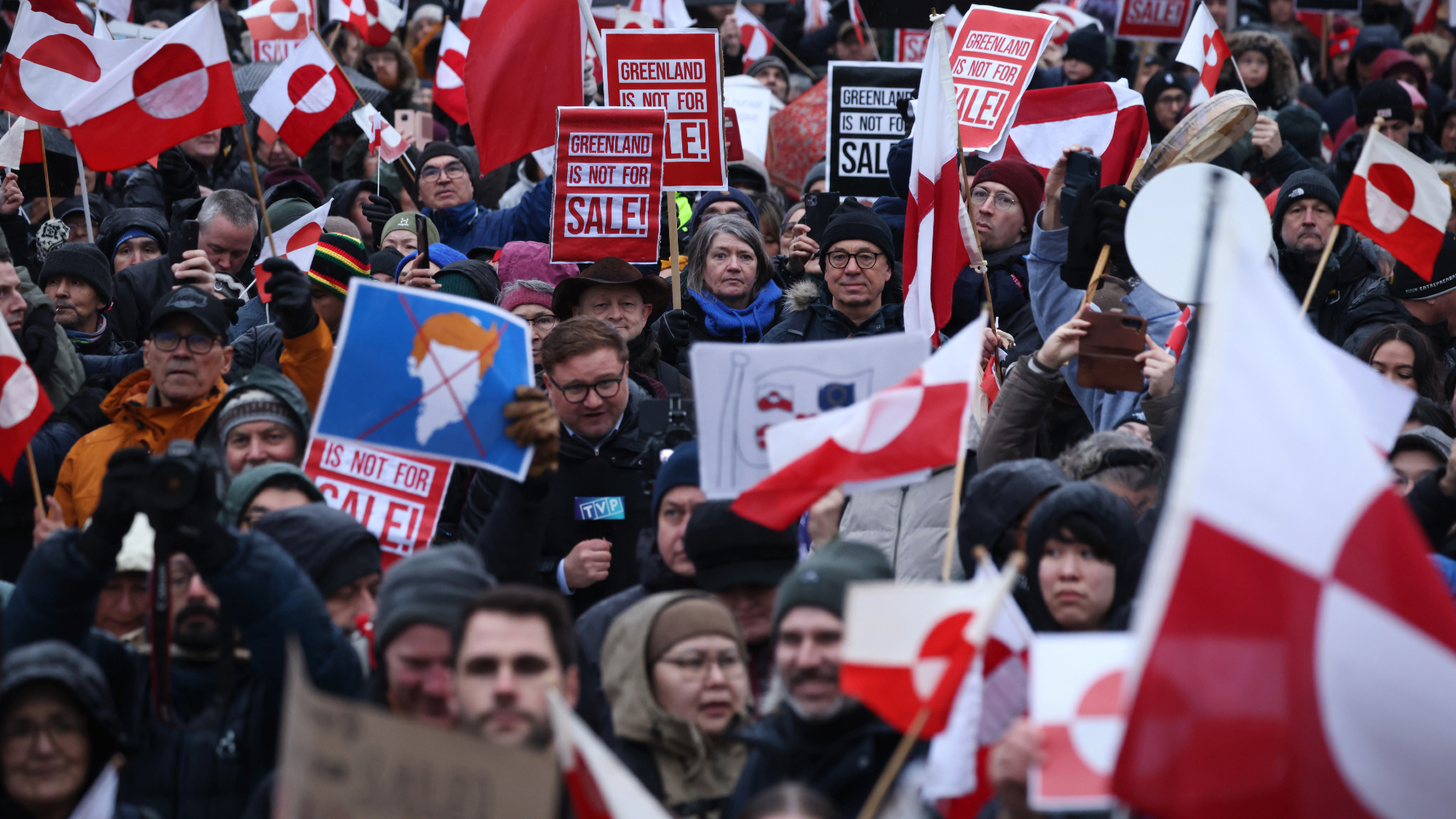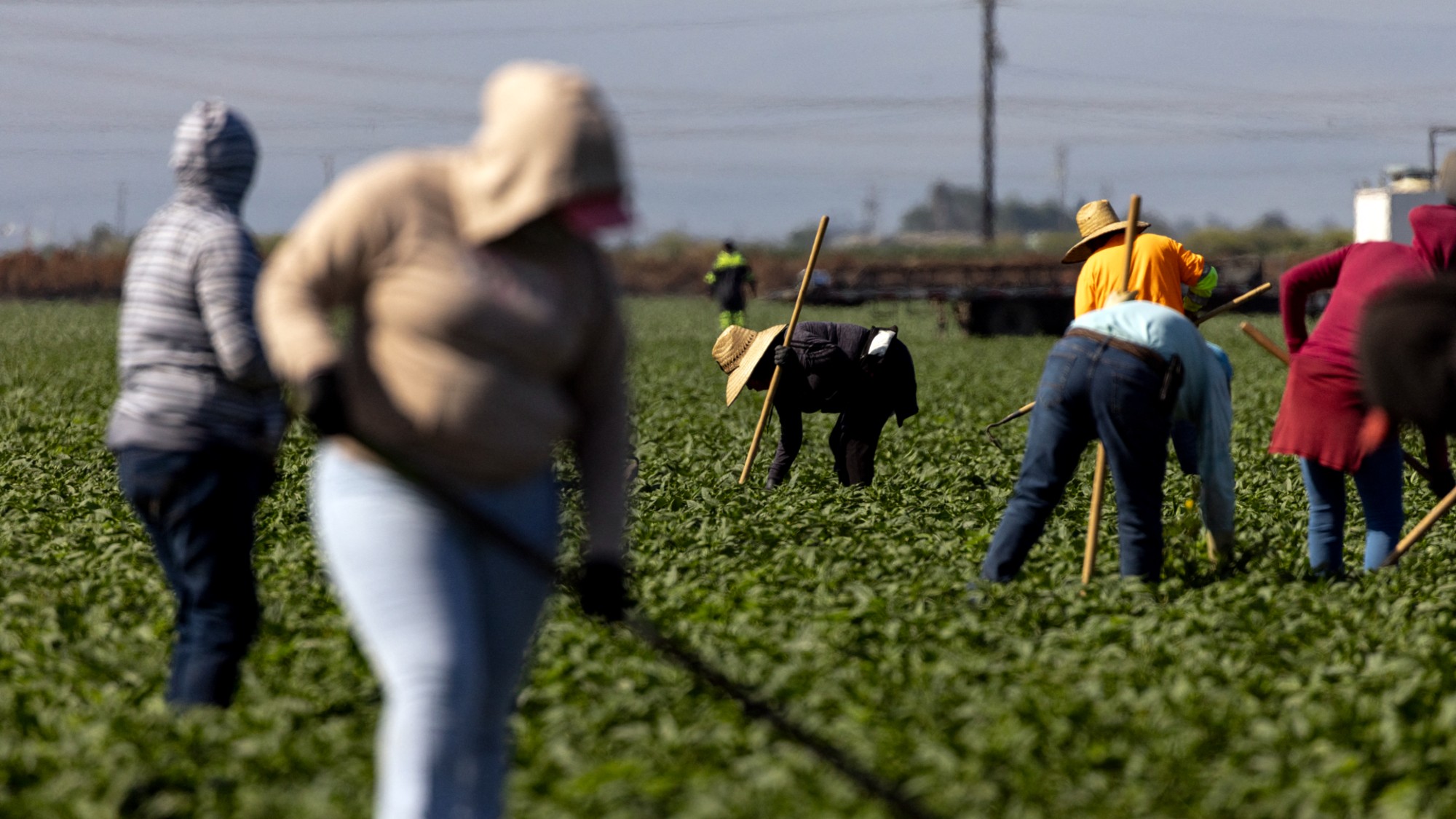How the Nobel Peace Prize is chosen
This year's prize has gone to survivors of the Hiroshima and Nagasaki bombings

A free daily email with the biggest news stories of the day – and the best features from TheWeek.com
You are now subscribed
Your newsletter sign-up was successful
This year's Nobel Peace Prize has been awarded to a Japanese organisation of atomic bomb survivors.
Nobel Committee chair Berit Reiss-Andersen praised the "extraordinary efforts" of the Nihon Hidankyo group, saying its activities have "contributed greatly to the establishment of the nuclear taboo".
How is the prize chosen?
This year, there were 286 nominations for the peace prize – comprising 197 individuals and 89 organisations. The selecting committee sends out nomination forms or invitations for proposals to "qualified nominators", and the deadline for their nominations is the end of January.
The Week
Escape your echo chamber. Get the facts behind the news, plus analysis from multiple perspectives.

Sign up for The Week's Free Newsletters
From our morning news briefing to a weekly Good News Newsletter, get the best of The Week delivered directly to your inbox.
From our morning news briefing to a weekly Good News Newsletter, get the best of The Week delivered directly to your inbox.
The list of people who can nominate is "long – very long", said Al Jazeera. They come under several category heads, including members of national assemblies, governments of sovereign states and current heads of state. Other nominators include officials with international peace organisations; and university professors of history, social sciences, law, philosophy and religion. Former recipients can also nominate.
The Norwegian Nobel Committee, the five people chosen by Norway's parliament to select the winner, says the large number of potential nominators ensures a "great variety of candidates", but it does not reveal the nominees or those who nominated them until 50 years later, though people can "self-report their submissions if they choose", said The New York Times.
Why has it been controversial?
Previous winners include Kailash Satyarthi and Malala Yousafzai (2014); Nelson Mandela and FW de Klerk (1993) and Mother Teresa (1979), but some recipients have proven more controversial than others.
When the 2009 Nobel Peace Prize was awarded to Barack Obama, many commentators questioned the choice, as he had become president just 12 days before nominations had closed. The award was "not for anything he's actually done", wrote Michelle Malkin, a conservative commentator, "but for the symbolism of what he might possibly accomplish sometime way off in the future".
A free daily email with the biggest news stories of the day – and the best features from TheWeek.com
Joseph Stalin, Benito Mussolini and Adolf Hitler have all been nominated in the past, although the latter nomination was meant satirically. None of them won. Meanwhile, Mahatma Gandhi was nominated five times but never actually won either, an omission that is often remarked upon.
Who is this year's winner?
The "grassroots movement" of atomic bomb survivors from Hiroshima and Nagasaki was chosen "for its efforts to achieve a world free of nuclear weapons" and for "demonstrating through witness testimony that nuclear weapons must never be used again", said the committee.
The group is the only nationwide organisation of atom-bomb survivors of Hiroshima and Nagasaki. Its website states that its main objectives include "the prevention of nuclear war and the elimination of nuclear weapons", including "the signing of an international agreement for a total ban and the elimination of nuclear weapons".
The Nobel committee said the organisation's members "help us to describe the indescribable, to think the unthinkable", and "to somehow grasp the incomprehensible pain and suffering caused by nuclear weapons".
Chas Newkey-Burden has been part of The Week Digital team for more than a decade and a journalist for 25 years, starting out on the irreverent football weekly 90 Minutes, before moving to lifestyle magazines Loaded and Attitude. He was a columnist for The Big Issue and landed a world exclusive with David Beckham that became the weekly magazine’s bestselling issue. He now writes regularly for The Guardian, The Telegraph, The Independent, Metro, FourFourTwo and the i new site. He is also the author of a number of non-fiction books.
-
 Health insurance: Premiums soar as ACA subsidies end
Health insurance: Premiums soar as ACA subsidies endFeature 1.4 million people have dropped coverage
-
 Anthropic: AI triggers the ‘SaaSpocalypse’
Anthropic: AI triggers the ‘SaaSpocalypse’Feature A grim reaper for software services?
-
 NIH director Bhattacharya tapped as acting CDC head
NIH director Bhattacharya tapped as acting CDC headSpeed Read Jay Bhattacharya, a critic of the CDC’s Covid-19 response, will now lead the Centers for Disease Control and Prevention
-
 Japan’s Takaichi cements power with snap election win
Japan’s Takaichi cements power with snap election winSpeed Read President Donald Trump congratulated the conservative prime minister
-
 How ‘Manchesterism’ could change the UK
How ‘Manchesterism’ could change the UKThe Explainer The idea involves shifting a centralized government to more local powers
-
 Trump: A Nobel shakedown
Trump: A Nobel shakedownFeature The president accepts gold medal he did not earn
-
 ‘Dark woke’: what it means and how it might help Democrats
‘Dark woke’: what it means and how it might help DemocratsThe Explainer Some Democrats are embracing crasser rhetoric, respectability be damned
-
 Trump ties Greenland threat to failed Nobel Peace bid
Trump ties Greenland threat to failed Nobel Peace bidSpeed Read ‘I no longer feel an obligation to think purely of Peace,’ Trump said
-
 The Board of Peace: Donald Trump’s ‘alternative to the UN’
The Board of Peace: Donald Trump’s ‘alternative to the UN’The Explainer Body set up to oversee reconstruction of Gaza could have broader mandate to mediate other conflicts and create a ‘US-dominated alternative to the UN’
-
 San Francisco tackles affordability problems with free child care
San Francisco tackles affordability problems with free child careThe Explainer The free child care will be offered to thousands of families in the city
-
 ‘All of these elements push survivors into silence’
‘All of these elements push survivors into silence’Instant Opinion Opinion, comment and editorials of the day